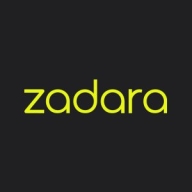


Amazon EFS and Zadara deliver cloud-based file storage solutions, competing with distinct performance attributes in a highly competitive market. While EFS edges ahead with seamless AWS integration and scalability, Zadara offers a robust feature set and flexibility that appeal to multi-cloud strategies.
Features: Amazon EFS provides automatic scaling, high availability across AWS regions, and supports NFS protocols crucial for seamless AWS integration. Zadara offers versatile cloud storage with both file and block storage options, multi-cloud connectivity, and enhanced security with dedicated cores and memory.
Room for Improvement: Amazon EFS might require enhanced customization options for users with non-AWS environments, improved pricing models for tighter budget control, and more flexible service levels. Zadara could benefit from simplifying its configuration process for new users, offering better integration documentation, and reducing management complexity for multi-tenant environments.
Ease of Deployment and Customer Service: Amazon EFS leverages AWS infrastructure for straightforward deployment and support, particularly for existing AWS users. Zadara provides customized service levels with dedicated support and flexible deployment suited for diverse multi-cloud strategies, giving a personalized service experience.
Pricing and ROI: Amazon EFS operates on a pay-as-you-go model, which is cost-effective for AWS-centric dynamic workloads, offering efficient ROI. Zadara presents predictable flat-rate pricing and reserved capacity options, ideal for organizations aiming for budgeting stability in multi-cloud environments.
It does not require much management once you set up correctly, so it saves time, allowing an admin to focus on other work.
The cost is not cheaper compared to AWS, and we have not seen the expected return on investment.
I would rate them an eight out of ten.
The support is done through email and is not that great, making it a very problematic area I've been dealing with for over four years.
Their technical support has been perfect lately, so I would give it a 10.
While the time to respond was good, the time to resolve was not optimal, as it took more than a week.
Amazon's support model is consistent across services.
Training and support depend on the plan you have, with centralized support being very helpful in case issues arise.
We lack adequate response times and a 24/7 service level agreement.
I rate the technical support from Zadara as nine out of ten.
Pure Storage FlashBlade is scalable.
There are between 5 and 10,000 people using it in our organization.
Its auto-scaling feature is a crucial point, providing high scalability that I would rate at ten out of ten.
Elastic File Systems allow me to scale up or down easily.
It is very cost-effective, and there's no need for initial charges.
Zadara is a fully-fledged platform, and our customers are happy with its use.
In case there is any issue with any blade, the data is moved to another.
Amazon EFS is extremely stable, as it is managed by AWS.
While I experienced an EFS mount dropping, it was related to server issues rather than EFS itself.
Technical support definitely needs significant improvement.
Its configuration should be easier.
One way Pure Storage FlashBlade can be improved is by having more compatibility between the FlashArray and FlashBlade.
Database-type workloads do not run properly on Amazon EFS (Elastic File System) because at the end of the day, it is a network file system and requests must travel from one place to another and then return.
Enabling AI-driven or automatic features would be beneficial for new or nontechnical users.
In my project, there are challenges related to AWS, such as ensuring proper security measures with IMS code and encryption.
Adding AI capabilities could enhance the offering as well.
Maintenance can also be complicated, especially when deeper troubleshooting requires navigating the CLI and searching for logs.
The pricing of Pure Storage FlashBlade is expensive compared to other products I used from other companies in the past, but one benefit is that they have built-in ransomware protection.
Regarding pricing, it is okay; we needed exactly this in size, and the price was a lot lower than competitors, making it good for us.
EFS could cost around $30 to $50 per month for similar usage.
Amazon EFS is more costly compared to other storage options available from AWS.
Elastic File Systems can be expensive due to the nature of data transfer costs.
The pricing is considered expensive.
We can plug in many blades, and we can have data up to one terabyte.
The best features of Pure Storage FlashBlade include better throughput and better performance.
Pure Storage FlashBlade's scalability is one of the most valuable features, and importantly, it always works, allowing for seamless upgrades.
Its ease of integration with other AWS services enhances our infrastructure, while the shared storage access improves reliability and processing continuity for our applications.
They help me process data while maintaining low latency, which is crucial for efficient data processing.
The most valuable feature of Amazon EFS is its auto-scaling capability.
The most valuable feature is its storage management capability.
Zadara's troubleshooting feature is very valuable for me.
| Product | Market Share (%) |
|---|---|
| Pure Storage FlashBlade | 5.3% |
| Amazon EFS (Elastic File System) | 1.1% |
| Zadara | 0.8% |
| Other | 92.8% |


| Company Size | Count |
|---|---|
| Small Business | 11 |
| Midsize Enterprise | 11 |
| Large Enterprise | 21 |
| Company Size | Count |
|---|---|
| Small Business | 6 |
| Midsize Enterprise | 4 |
| Large Enterprise | 8 |
| Company Size | Count |
|---|---|
| Small Business | 12 |
| Large Enterprise | 4 |
FlashBlade is the industry’s most advanced scale-out storage for unstructured data, powered by a modern, massively parallel architecture to consolidate complex data silos (like backup appliances and data lakes) and accelerate tomorrow’s discoveries and insights.
Amazon Elastic File System (Amazon EFS) provides simple, scalable file storage for use with Amazon EC2 instances in the AWS Cloud. Amazon EFS is easy to use and offers a simple interface that allows you to create and configure file systems quickly and easily. With Amazon EFS, storage capacity is elastic, growing and shrinking automatically as you add and remove files, so your applications have the storage they need, when they need it.
When mounted to Amazon EC2 instances, an Amazon EFS file system provides a standard file system interface and file system access semantics, allowing you to seamlessly integrate Amazon EFS with your existing applications and tools. Multiple Amazon EC2 instances can access an Amazon EFS file system at the same time, allowing Amazon EFS to provide a common data source for workloads and applications running on more than one Amazon EC2 instance.
It’s designed for high availability and durability, and provides performance for a broad spectrum of workloads and applications, including Big Data and analytics, media processing workflows, content management, web serving, and home directories.
Zadara is a powerful enterprise-level storage solution whose design enables it to handle every aspect of a user’s data storage needs. It can be deployed in any location, using any protocol, and storing any data type that an organization requires. With Zadara, organizations can do everything that they were able to do with more traditional systems in a cheaper and more efficient way.
Zadara Benefits
Some of the ways that organizations can benefit by choosing to deploy Zadara include:
Zadara Features
File analytics. Organizations can leverage a powerful analytics package that can provide them with critical insights. These tools can help users sort through their data and make more informed data management decisions.
Reviews from Real Users
Zadara is a highly effective solution that stands out when compared to many of its competitors. Two major advantages it offers are its extensive suite of cloud solution integrations and its object storage capability.
Steve H., the chief technology officer at Pratum, writes, “One of the most valuable features is its integration with other cloud solutions. We have a presence within Amazon EC2 and we leverage computer instances there. Being able to integrate with computing, both locally within Zadara, as well as with other cloud vendors such as Amazon, is very helpful, while also being able to maintain extremely low latency between those connections.”
Mauro R., the CEO of Momit SRL, says, “The object storage feature is wonderful. With traditional storage, you have a cost per gigabyte that is extremely high or related to the number of disks. With Zadara Storage Cloud, you have a cost per gigabyte that you can cut and tailor to your needs independent of the number or size of the disks.”
We monitor all File and Object Storage reviews to prevent fraudulent reviews and keep review quality high. We do not post reviews by company employees or direct competitors. We validate each review for authenticity via cross-reference with LinkedIn, and personal follow-up with the reviewer when necessary.